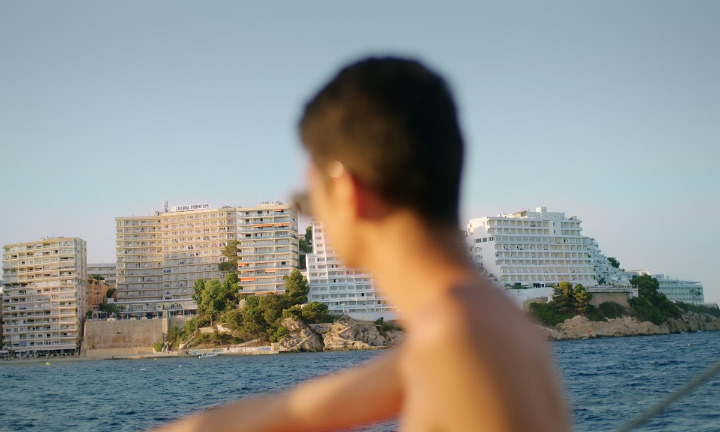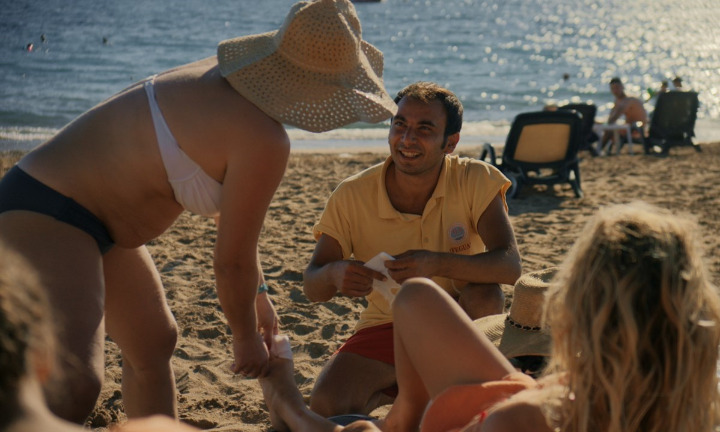In the past decade, online videos and tabloid photos of binge-drinking Brits getting “mortal” during their Easter and summer breaks in Spain have made having fun look alarmingly like the aftermath of a war. Too often, we see half-naked unconscious bodies lying on the streets in the sun and ever popular viral videos of public sex games while also reading annual reports of injuries and deaths of drunks attempting to balcony dive into swimming pools. The resort town of Magaluf (slangily called “Shagaluf”), on the island of Majorca off Spain’s east coast, has been struggling to reform its sleazy image, passing dress code laws and trying to focus more on families and year-round upscale tourism.
The quasi-fictional film provocation, Magaluf Ghost Town, probably won’t help their cause. Michael Angel Blanca’s film, comprised of observational and staged scenes along with found footage of Magaluf debauchery from the internet, conforms to the American trash-art aesthetic of Harmony Korine (Gummo, Spring Breakers) with a dash of David Lynch’s small town nightmares. The film weaves together three unconnected stories of Magaluf’s year-round residents.
One is a bored gay teenager who aspires to leave the island and become a model. He spends his time posing for photos, taking acting classes and spinning stories to his friend about tourists being sacrificed. A second is a feisty older widow, Maria, recovering from a hospital stay, who holds conversations with her dead husband but enjoys the companionship of her shy young African boarder. (Among other fictional elements, the film dramatizes her dreams.) The third character is a well-groomed Russian woman real estate agent, who is pushing the campaign to transform Magaluf into an upscale resort. Also, apparently, she believes she and her daughter can see ghosts.
In a climactic scene, the teen and a friend hatch a scheme to rob a tourist. They find an unconscious man on the beach, strip him and take him by a skiff to the off-shore Isla de sa Porrasa (Black Lizard Island) in the middle of Magaluf Bay, where he awakens the next morning to see his abductors gazing at him. (If this really happened, it’s difficult to imagine how they managed to secure a release form.) Thankfully, no human sacrifice takes place, but on the downside, nothing much else happens that’s either edifying or empathetic. Although the English title Magaluf Ghost Town fits the supernatural theme, the Spanish title, Magaluf no existe, comes closer to the film’s nihilistic spirit.
Magaluf Ghost Town premieres at Hot Docs on April 29, 10 a.m.












